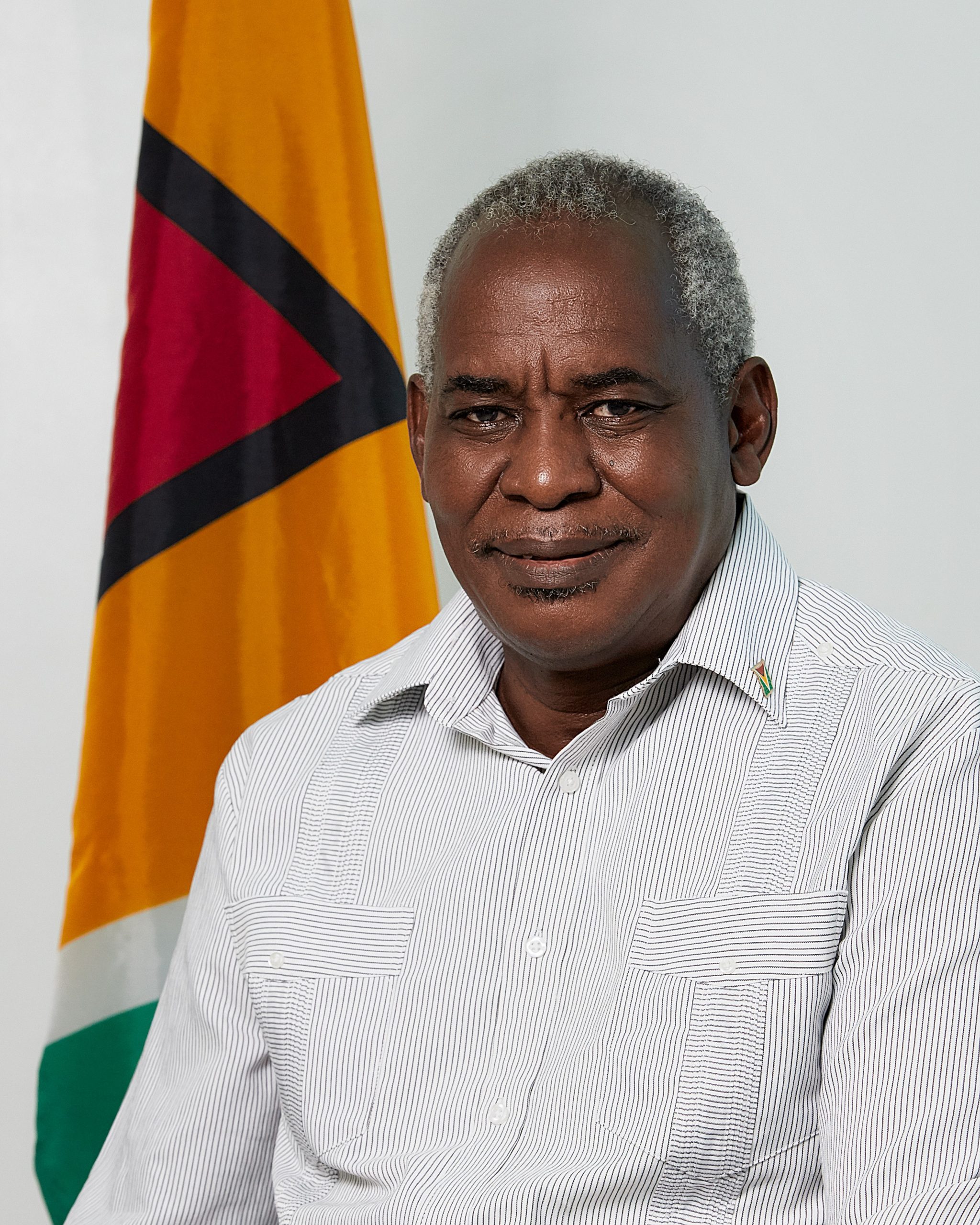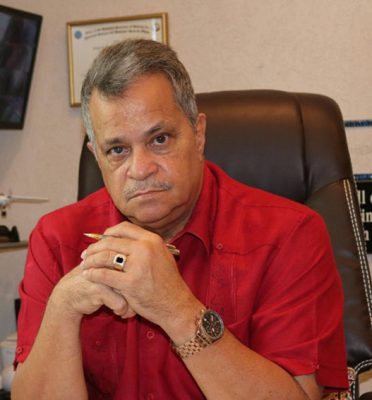
Robeson Benn
March 29 ,2021
The Government says it is preparing to add additional patrols along this country’s western river spaces to combat piracy and other security threats and a meeting is being planned with local fisherfolk to discuss equipping their vessels with affordable satellite-tracking devices.
“All issues of piracy are of great concern to us. The protecting of life and the assets of the fishing folk are some of our prime concerns. The issue of GPS (global positioning system)and AIS (Automatic Identification System ) will ensure also that we are within our sovereign areas and will also aid search and rescue responses, in addition to monitoring activity [on the sea],” Minister of Home Affairs, Robeson Benn told Stabroek News yesterday.
“There is an intention to meet with them [fisherfolk] …and efforts are currently underway to strengthen the maritime assets and to improve the deployment and alertness of the manpower of the security,” he added.

The Minister of Home Affairs said that the Ministry of Agriculture has also been in regular communication with local fisherfolk and it will be a joint effort with the Maritime Administration Department (MARAD).
AIS technology is used primarily as a tool for maritime safety, including vessel collision avoidance and as a means for coastal nations’ Vessel Traffic Services (VTSs) to gather information on vessels operating near their coasts. According to www.marineinsight.com the AIS, “is an automated tracking system that displays other vessels in the vicinity. It is a broadcast transponder system which operates in the VHF mobile maritime band. Your own ship also shows on the screens of other vessels in the vicinity, provided your vessel is fitted with AIS.”
Since late 2019, Guyana’s MARAD had planned to ensure that all local vessels were equipped with AIS but it is unclear what happened to the initiative.
Advisor on security to the Government of Guyana, Captain Gerry Gouveia yesterday echoed that government was concerned about the recent pirate attacks on the Western front and said that the Guyana Defence Force was being mobilized to increase patrols in areas of threat. “It is a very serious concern to the security establishment. The Guyana Defence Force is mobilizing with the resources that they have and patrols in the areas. We are also talking to the Maritime Administration for collaboration,” Gouveia told this newspaper. “We have spot trackers for the aircraft we have and we need to put on the boats. In an emergency they can just press a button and we know where exactly they are. Their emergency alarm system is not as robust as should be and we are examining and looking at it“, he added.
Gouveia underscored the importance of GPS and AIS tracking on vessels here as he posited that it was a small investment for real-time monitoring and swift response to emergencies. “This device is not costly. All of our planes have it … a spot tracker. It uses satellite and sends back a signal so we know exactly where they are. We now have the helicopter so the response time is better. We have the coast guard with their metal shark boats to get out there and we are also in the process of accessing the ships which will patrol EEZ,” the Security Advisor said.
Satellite monitoring
He explained that for about US$150 per device and another approximate US$100 annual subscription fee for satellite monitoring, fishermen can be more at peace while they ply their trade on the rivers and seas as they would have real time monitoring. And should they have an emergency, they would not have to take to a satellite phone to call into shore for assistance as with the press of a button their location will be seen.
Piracy has long been a problem for local fisherfolk and those who ply the Waini area in the north west, which is easily accessible from Venezuela, face the brunt of the attacks from pirates who are believed to originate in the neighbouring country.
For this year, there have been two reported attacks where local crews were robbed of their fuel, food and catch.
Venezuela’s aggression in Guyana’s Exclusive Economic Zone (EEZ) has also seen fisherfolk scared to fish in areas they know are within this country’s boundaries for fear of attacks from either pirates or seizure by Caracas’ military. In January of this year, the Venezuelan military seized two vessels which were fishing in Guyanese waters. According to the Ministry of Foreign Affairs and International Coopera-tion the two vessels were intercepted by Venezuelan naval vessel Commandante Hugo Chavez GC 24, while operating off the coast of Waini Point in Guyana’s waters.
The men were released in February, following international pressure calling for their safe return.
This month saw two pirate attacks on the Waini River with the last being the vessel owned by Essequibo resident Deopaul Goordeen.
Goordeen said that his crewmembers were robbed by 12 gun and cutlass toting pirates of items worth more than $3.5M.
“Them tek way all them gas, foodstuff, them stove and suh, everything them gone with. Them clothes everything. Them ain’t come back with no clothes, nothing,” he had related to this newspaper.
According to Goordeen, the attackers placed the fishermen in a section of the boat while they carted off the valuables. They then set the men free.
He said the men were left drifting at sea for a few days before they were rescued by another vessel.
Goordeen further noted that one of the crew members who managed to hide his phone from the attackers subsequently contacted him and informed him of what had taken place.
He called on the authorities to intervene so that the fishermen can receive justice and said that action needs to be taken so that fishermen can feel safe to ply their trade again.
